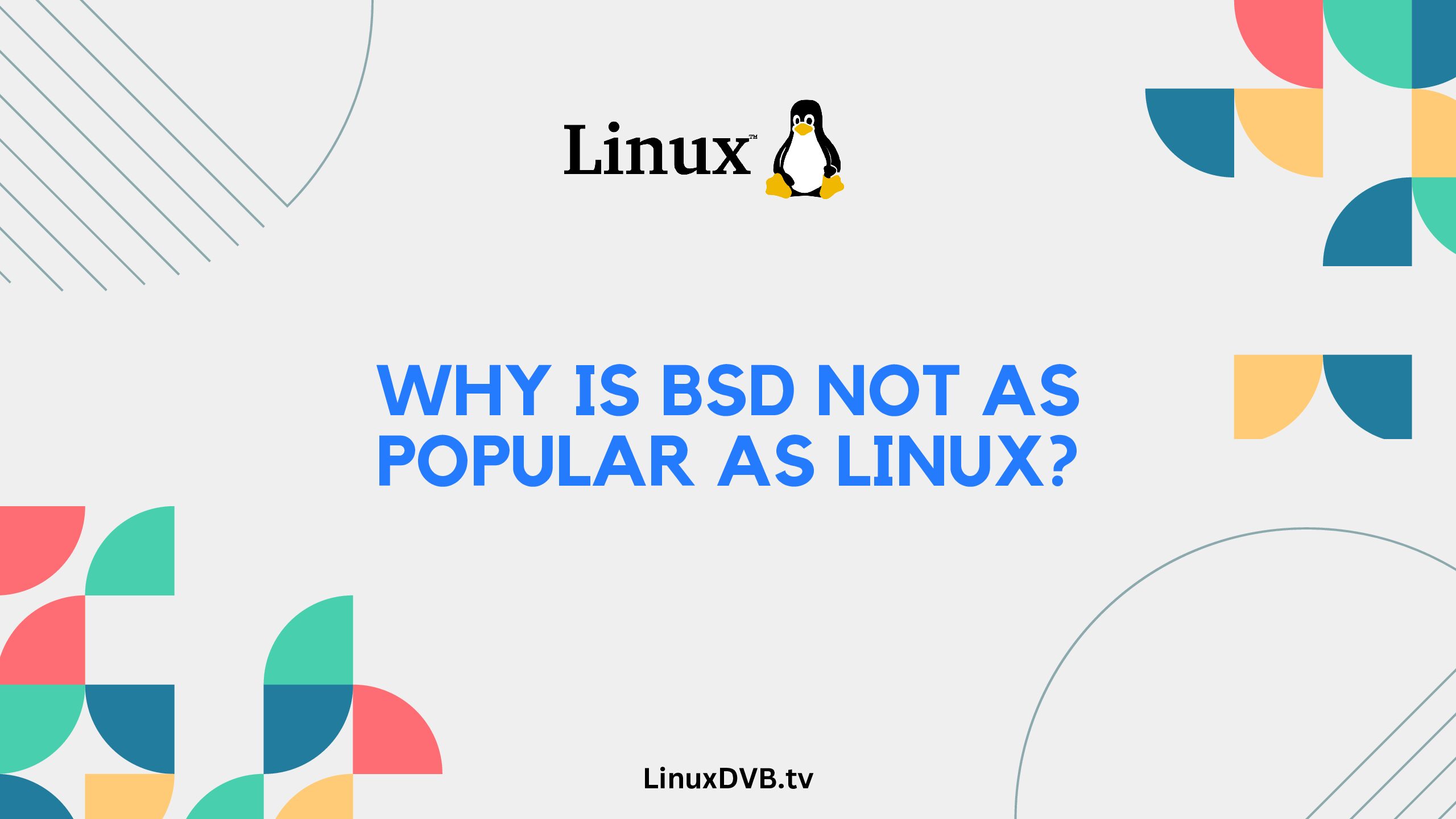Introduction
In the realm of open-source operating systems, Linux stands tall as a household name, while BSD (Berkeley Software Distribution) remains a hidden gem. While both operating systems share common roots, there are stark differences in their adoption and popularity. This article aims to unravel the mysteries behind the question: Why is BSD not as popular as Linux?
Table of Contents
Why is BSD Not Popular as Linux?
BSD, although an exceptional operating system, has not achieved the same level of popularity as Linux. Let’s explore the factors contributing to this discrepancy.
Lack of a Unifying Vision
One key factor is the absence of a unified vision within the BSD community. Unlike Linux, which is governed by the Linux Foundation, BSD development is spread across multiple variants like FreeBSD, OpenBSD, and NetBSD. This fragmentation has hindered the collective growth and recognition of BSD.
Licensing and Commercial Constraints
BSD and Linux have different licensing models. While Linux adheres to the GNU General Public License (GPL), which enforces derivative works to be open source, BSD employs more permissive licenses. This difference has led to Linux being widely integrated into commercial products, contributing to its broader adoption.
Hardware Compatibility Challenges
Linux has seen extensive efforts towards hardware compatibility, making it versatile for a wide range of devices. In contrast, BSD’s support for newer hardware is often delayed. This lag in compatibility has restricted its appeal, particularly in the fast-paced consumer market.
Marketing and Publicity
Linux has benefited from robust marketing and community engagement efforts. The “Linux” brand has been effectively promoted, whereas BSD variants are often overshadowed. Greater marketing initiatives have cultivated a larger user base for Linux, contributing to its popularity.
Myth of Complexity
A prevailing myth is that BSD is more complex than Linux, deterring newcomers. In reality, both systems offer similar levels of complexity. BSD’s perceived complexity is due to its limited exposure and documentation compared to the vast resources available for Linux.
Community and Third-Party Support
The Linux community is renowned for its inclusivity and support, fostering an environment conducive to learning and growth. While BSD communities are welcoming, they are smaller and offer fewer resources. Moreover, Linux boasts extensive third-party software support, enhancing its utility.
Enterprise Adoption Bias
Linux gained early traction in enterprise environments due to its licensing and collaborative development. This head start contributed to its dominance in server rooms and data centers. BSD, while equally capable, struggled to overcome this early bias.
Network Effects
Linux’s popularity has led to a strong network effect. As more users adopt Linux, software vendors prioritize compatibility, creating a positive feedback loop. BSD, lacking the same momentum, has not benefited from such a reinforcing cycle.
Niche Appeal
BSD’s design philosophy caters to a niche audience seeking security and stability. This targeted approach, while valuable, has limited its mainstream appeal. Linux, with its diverse distributions, addresses a broader spectrum of user needs.
Legacy Perception
Some perceive BSD as outdated, attributing this misconception to its longer history. However, this legacy perception ignores BSD’s continuous evolution and modern features.
Frequently Asked Questions (FAQs)
Is BSD harder to learn than Linux?
No, BSD is not inherently harder to learn than Linux. Both have similar learning curves, and familiarity with one can ease the transition to the other.
Can BSD run the same software as Linux?
While there are differences in software compatibility, many applications can be adapted to run on both BSD and Linux systems.
Does BSD offer better security?
BSD’s design places a strong emphasis on security, which can make it appealing for certain use cases. However, Linux also offers robust security features.
Can I use BSD for servers?
Absolutely, BSD is suitable for server environments. It provides stability and security, making it a viable choice for hosting services.
Is BSD completely free?
Yes, BSD operating systems are free to use and distribute. They come with permissive licenses that allow for various uses.
Can BSD replace Linux?
Depending on your needs, BSD can be a worthy alternative to Linux. It’s crucial to assess your requirements and compatibility before making a choice.
Why is BSD not popular as Linux?
BSD might not be as popular as Linux due to factors like limited hardware support and a smaller developer community.Why is BSD better than Linux?
BSD is often praised for its advanced networking features, licensing, and security focus.Why is BSD not as popular as Linux?
BSD’s less widespread popularity could be attributed to its stricter licensing, fewer software packages, and historically limited marketing efforts.Why use BSD instead of Linux?
BSD might be preferred for its more permissive licensing, strong emphasis on security, and robust networking capabilities.Why is Linux more popular than BSD?
Linux’s greater popularity can be attributed to its wider hardware and software support, larger community, and earlier adoption by major organizations.Conclusion
In the grand tapestry of operating systems, BSD and Linux are threads woven from the same fabric but with distinct patterns. The reasons behind BSD’s lesser popularity are multifaceted, ranging from licensing nuances to marketing strategies. However, BSD’s capabilities and merits should not be overlooked. As technology evolves, both BSD and Linux continue to enrich the open-source ecosystem, each contributing its unique strengths. So, while BSD might not share Linux’s limelight, it remains a valuable choice for those who prioritize security, stability, and a different approach to computing.

